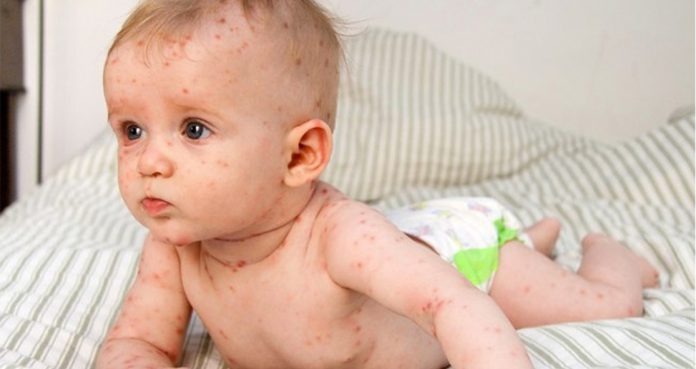Health officials are encouraging parents to get their infants vaccinated sooner than later as the number of measles cases in the U.S. has increased.
Normally, children get their first MMR (measles-mumps-rubella) vaccine when they are a year old; however, given the surge in measles cases, infants in the regions with the ongoing outbreak can get their shot earlier in order to stay protected.
On Monday, the CDC has reported that the number of measles cases reached up to 704 as of April 26, which is the highest since 1994.
The CDC has blamed misinformation about vaccines for driving anti-vaccine movement, which has allowed the infection to spread across many states. Most people with measles in the ongoing outbreak have been linked to low vaccination rates.
Young kids, infants, pregnant women, and people with weak immune systems are at a greater risk of developing complications from this extremely contagious virus. That’s why public health officials are leaving no stone unturned when it comes to encouraging people in areas with active measles outbreaks to get vaccinated.
New York, in particular, has seen hundreds of cases since last fall, so the state’s Department of Health has given doctors the permission to lower the vaccination age to six months in the vulnerable areas where the outbreak has begun.
NYC Mayor Bill de Blasio has ordered that everyone, including babies as young as six months old, get their measles vaccinations. Despite debunking the myth that the MMR vaccine causes autism, parents hesitate to get their children vaccinated. The vaccine is indeed safe and effective.
Dr. Peter Hotez of Baylor College of Medicine said, “An extra measles vaccine at six months is very safe, too. It just isn’t the norm because, under typical, non-outbreak circumstances, the vaccine may not be as effective for babies that young. However, some babies could still benefit from early immunization during a true measles outbreak.”
The MMR vaccine can help protect people against measles by giving the immune system a bout against a weaker opponent. Dr. Paul Offit of Children’s Hospital of Philadelphia said, “The goal is to induce an immune response that’s the product of natural infection, without having to pay the price of natural infection.” The best way to prevent measles is by making sure everyone gets their shots. On Monday, CDC director Robert Redfield said in a statement, “Vaccines are safe. Vaccines do not cause autism. Vaccine-preventable diseases are dangerous.”






















